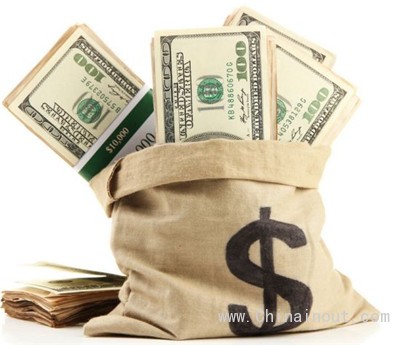Vioearth是蘇格蘭的一家小公司,但它有著遠大的抱負,那就是讓自己生產的“Viosmart”節能電力集線器進入美國各地的辦公室。
但是,在考慮那筆啟動美國業務所需的50萬美元投資的時候,Vioearth首席執行官麥克尼爾-麥卡勒姆(McNeill-McCallum)遇到了一個新挑戰:美元走強。他說:“這影響了我們所有的財務模型。”
從美聯儲(Fed)到“銹帶”制造商和內陸地區的農場主,每一個業務受到國際市場影響的美國人,都在考慮美元過去6個月飆升帶來的后果。
人們的注意力大多集中于美元走強對出口商和貿易或者要將海外利潤匯回本土的美國企業有何影響。但美元走強對美國經濟復蘇的影響還體現在它對外國直接投資(FDI)的影響上,而美國政府近幾年已經將吸引外國直接投資作為優先事項。
麥克尼爾-麥卡勒姆是抵達華盛頓出席近日舉行的“選擇美國投資峰會”(selec USA Summit)的1300名投資者的一員。在這次峰會上,從美國總統巴拉克•奧巴馬(Barack Obama)和谷歌董事長埃里克•施密特(Eric Schmidt)到州政府官員的各類人士,都將爭取他們的投資。
“選擇美國投資峰會”創立于2011年,此前以通用電氣(General Electric)董事長杰夫•伊梅爾特(Jeff Immelt)領銜的一個委員會發現,美國聯邦政府在吸引外國直接投資方面行動不夠積極。作為一個投資促進機構,“選擇美國投資峰會”相對而言還是個新手,這主要是因為這項工作以往一直是國家和地方政府的活兒。
前銀行業人士斯蒂芬•塞利格(Stefan Selig)表示:“在促進外商投資美國方面,我們做得還遠遠不到位。”塞利格現在擔任美國商務部主管國際貿易事務的副部長,負責吸引外國直接投資事宜。盡管過去在吸引外國投資方面不太積極,但美國的外國直接投資存量仍達到近3萬億美元,居全球首位,并且這一數字還在不斷增長之中。
官員們宣稱,“選擇美國投資峰會”對此做出了貢獻。出席2013年首屆峰會的投資者在美國28個州投資了價值總計超過70億美元的項目。但2013年美國占全球直接投資的份額從2000年的逾三分之一降到了不到五分之一。上周發布的初步數據還顯示,2014年,流入美國的外國直接投資下降60%,不過這主要是因為英國沃達豐(Vodafone)以1300億美元賣掉了其持有的美國Verizon Wireless的股份。
“國際投資組織”(The Organisation for International Investment)的總裁兼首席執行官南希•麥克勒農(Nancy McLernon)表示:“現在世界各地的企業對美國相當看好。但不容忽視的是,美國正作繭自縛,可能浪費這個絕佳的條件。”“國際投資組織”代表的是在美外國投資者的利益。麥克勒農認為,其中一個障礙是,美國的企業所得稅率眼下依然比經合組織(OECD)平均水平高出10個百分點。
麥克勒農表示,美國在過去20年里未能簽署許多實質性的貿易協定,這也影響了美國提高競爭力的計劃,不過鑒于奧巴馬政府正在推動一些重要的環太平洋和跨大西洋貿易協定,這種狀況正在改變。
在那些政策辯論當中,美元走強代表著新的難題。塞利格表示:“美元走強將會影響(美國經濟的)各個方面,因為它與貿易和投資相關。”但他主張,投資者也應將美元走強視為美國實力強勁的信號。盡管美元走強提高了初始投資的成本,但它是美國經濟健康的結果——美國經濟的表現,可以說比中國等吸引了巨額外國直接投資的新興經濟體還要好。
他說:“匯率問題加大了對美投資難度……但你也獲得了進入美國市場的入口。”
大型投資者還提出,他們正在做的是長期的戰略性投資,而不是更容易受到匯率波動影響的短期投資。
Drax Group在英國經營著一座大型電廠,這家使用煤炭燃料的電廠正在改用可持續的木屑顆粒燃料。該公司近年來投資了2.5億美元,用于在路易斯安那州和密西西比州建立木屑顆粒生產廠,以及建造用于將木屑顆粒燃料運出去的港口設施。高管們表示,現在該公司在美國尋址建立其他工廠的努力,沒有受到美元匯率變化的影響。
Drax Power的監管和政策主管戴維•洛夫(David Love)表示:“這顯然是我們必須處理的問題之一。但我們現在做的是長線投資。”
麥克尼爾-麥卡勒姆得出了相同的結論。按英鎊來說,他不得不增加初始投資,但他認為,只要美元保持強勢,這種押注未來就可以通過更高的股息獲得回報。
他說:“我們最終還得做事。先走出去、行動起來,盡全力把事情做好,然后再擔心(美元匯率)吧。”(中國進出口網)
Vioearth is a small Scottish company with big ambitions to bring its “Viosmart” energy efficient power hubs into offices around the US.
But as Duncan McNeill-McCallum, Vioearth’s chief executive, has been contemplating the $500,000 investment needed to launch his US business, he has come up against a new challenge: a strengthening dollar. “It is affecting all of our financial models,” he says.

from the Federal Reserve to rust belt manufacturers and heartland farmers, the dollar’s surge over the past six months has everyone in the US with an international angle to their business contemplating the consequences.
Much of the focus has been on the impact on exporters and trade or US corporates repatriating overseas profits. But there is another way the strong dollar is casting its shadow over US recovery: foreign direct investment, something the administration has made a priority of attracting in recent years.
Mr McNeill-McCallum is one of 1,300 investors landing in Washington for this week’s selec USA Summit, wher they will be courted by everyone from President Barack Obama and Eric Schmidt, chairman of Google, to state officials.
Launched in 2011, after a panel led by Jeff Immelt, head of General Electric, found the federal government’s existing efforts to lure FDI lacking, selec USA remains a relative newcomer to the world of investment promotion. That is mainly because the job has traditionally been left to state and local governments.
“We’ve not been nearly as good as we should have been at promoting the US as a destination for investment,” says Stefan Selig, a former banker who oversees the effort as US undersecretary of Commerce for International Trade. Despite halfhearted efforts in the past, the US is the country with the biggest stock of FDI, at almost $3tn and growing.
Officials claim selec USA helped add to that. Investors at its first summit in 2013 put their money into projects worth more than $7bn in 28 states. But its share of the global pie fell from more than a third in 2000 to less than a fifth in 2013. Preliminary numbers released last week also showed FDI into the US dipping by 60 per cent in 2014, though largely because of one transaction, Vodafone of the UK’s $130bn sale of its stake in Verizon Wireless of the US.
“Companies around the world are fairly bullish on the US right now. But the big ‘but’ is that self-inflected wounds could deter that,” says Nancy McLernon, president and CEO of the Organization for International Investment, which represents foreign investors in the US. Among those, she argues, is a corporate tax rate that remains 10 percentage points higher than the average among OECD nations.
A US failure to secure many substantive trade agreements in the past two decades has also hurt the country’s competitive proposition, she says, though that is changing with the Obama administration’s push for big Pacific Rim and transatlantic trade pacts.
Amid those sorts of policy debates, the strength in the dollar represents a new conundrum. “The strong dollar is going to impact everything [in the US economy] as it relates to trade and investment,” says Mr Selig. But he argues that investors also see it as a sign of strength. While the strong dollar raises the cost of initial investments, it is the result of a healthy US economy, which has arguably performed better than emerging economies like China, which have attracted huge.
“The currency issue makes it more difficult to invest . . . but you also get access to the market,” he says.
Big investors also argue they are making long-term, strategic investments rather than short-term ones that might be more affected by currency swings.
The Drax Group, which operates a massive power station in the UK that it is converting from coal fuel to sustainable wood pellets, has invested $250m in recent years into production facilities for those pellets in Louisiana and Mississippi and a port facility to ship them out. Its search for locations to establish other plants in the US is not being affected by the dollar at this point, executives say.
“It is one of the issues that we have to deal with obviously,” says David Love, head of regulation and policy at Drax Power. “But these are long-term investments that we are making.”
Mr McNeill-McCallum has come to the same conclusion. He has had to increase initial investments in UK currency terms but he thinks that bet will be repaid in the future via bigger dividends, as long as the dollar stays strong.
“At the end of the day we have a job to do,” he says. “Let’s go out and do the job and do the best we can and then worry about [the dollar] later.”











